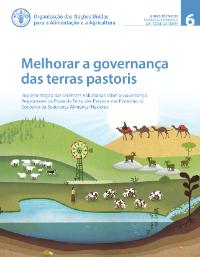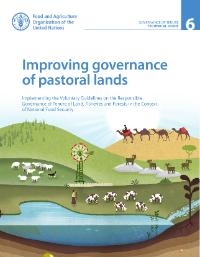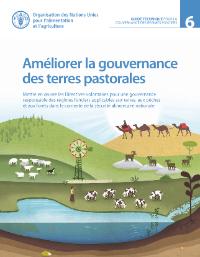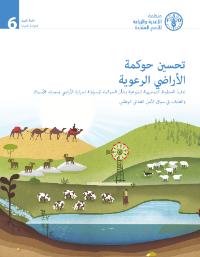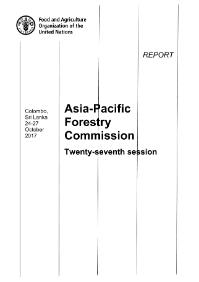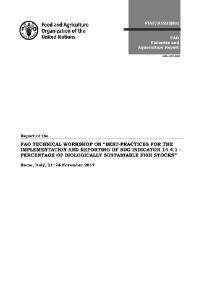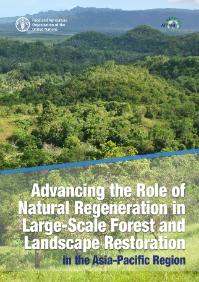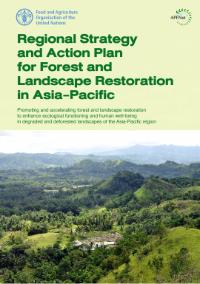As Diretrizes Voluntárias sobre a Governança Responsável da Posse da Terra, das Pescas e das Florestas no Contexto da Segurança Alimentar Nacional mencionam explicitamente os pastores como utilizadores das Diretrizes e como alvos de capacitação. Apesar da marginalização histórica e muitas vezes…
The Technical Guide on Pastoralism builds on a number of initiatives and studies from recent years that have shone a light on pastoral governance and land tenure: on the inherent challenges pastoralists face, the shortcomings of governments in securing pastoral tenure, and the emerging examples…
Les Directives volontaires pour une gouvernance responsable des régimes fonciers applicables aux terres, aux pêches et aux forêts dans le contexte de la sécurité alimentaire nationale mentionnent de manière explicite les éleveurs nomades comme utilisateurs des Directives et comme cibles du…
تشير الخطوط التوجيهية الطوعية بشأن الحوكمة المسؤولة لحيازة الأراضي ومصايد الأسماك والغابات في سياق الأمن الغذائي الوطني بصراحة إلى الرعاة باعتبارهم المستخدمين النهائيين للخطوط التوجيهية والمستهدَفين بمساعي تنمية القدرات. وعلى الرغم من التهميش التاريخي والذي غالباً ما يكون مستمراً للرعويين، تم…
Environmental policies and regulations have been instrumental in influencing deforestation rates around the world. Understanding how these policies change stakeholder behaviours is critical for determining policy impact. In Queensland, Australia, changes in native vegetation management policy…
This publication reports the proceedings of the twenty-sixth session of the Asia-Pacific Forestry Commission (APFC) held in Colombo, Sri Lanka, from 23 to 27 October 2017. The main themes considered were: Forestry in a new landscape; Guidelines for using forest concessions to manage public…
This study examined how planning mechanisms support affordable housing supply in Australia and overseas. In England 43 per cent of affordable housing built in 2015–16 (12,866 units) were delivered due to inclusionary planning requirements, while more than 500 cities in the United States have…
The FAO Technical Workshop on “Best-practices for the implementation and reporting of SDG indicator 14.4.1 – Percentage of biologically sustainable fish stocks” was held in Rome, Italy, from 21 to 24 November 2017. The purpose of the Workshop was to raise awareness of SDG 14.4.1’s significance…
There are numerous global, regional, national and even subnational targets for increasing forest area and forest restoration. In light of these global targets and emerging ambitious national commitments, it is imperative to develop low-cost strategies and techniques for landscape restoration.…
The Food and Agriculture Organization of the United Nations (FAO) with financing from the Global Environment Facility (GEF) under the Pacific Alliance for Sustainability implemented the project “Forestry Conservation and Protected Area Management” in cooperation with the Governments of the…
En 2003, la Unión Europea (UE) lanzo el Plan de acción sobre aplicación de las leyes, gobernanza y comercio forestal (Plan de acción FLEGT) para combatir la tala ilegal de madera, promover el consumo y la producción de madera de origen legal y, en última instancia, contribuir al manejo forestal…
Degradation of forests can have severe negative local impacts and far-reaching consequences, including soil erosion, loss of biodiversity, greenhouse gas emissions, dust storms, diminished livelihood opportunities and reduced yields of forest products and services. Reversing the adverse…


